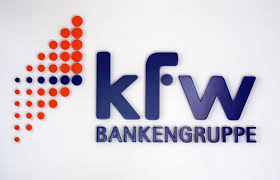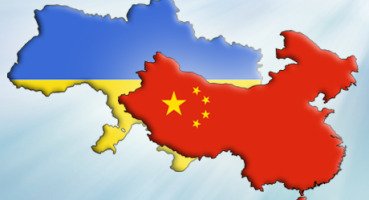Ms Mogherini, EU High Representative and EEAS boss, together with Johannes Hahn, European Commissioner for Neighbourhood Policy, have decided upon a review of the current neighbourhood policies – The EaP policy toward the EU’s eastern neighbours, and particularly Ukraine being of greatest interest to this blog – naturally.
The geopolitical landscape is far more tense than it was when the Neighbourhood Policy was last reviewed.
To say it has suddenly changed, or is suddenly different as far as the EU’s east is concerned, is something of a stretch – for this blog was warning in 2012 that Russian geopolitics would take a far more coercive, robust and forceful turn as AA/DCFTA agreements were due to be signed and ratified within the “joint neighbourhood”. (A view that earned the author of this blog a public and on the record dressing down by then EU Commissioner Stefan Fule as being “unhelpful” at the time.)
As a result of stubbornly ignoring warning signs, the EU has been left reactionary and behind the curve ever since..
It also has to be said, that neither Ms Mogherini nor Mr Hahn instill much confidence with regards to either personal, or their nations, positions regarding The Kremlin. To be generous both they, and their respective home nations, would be seen as “understanders” in the softest kindly Aunt sense of the word (rather than the sense of expert comprehension), some, perhaps overly critical, may say “appeasers”.
Fortunately neither Ms Mogherini or Mr Hahn set EU foreign policy. That remains, ultimately, a decision of the European Council and the leaders of the 28 Member States – and not that of the EEAS or European Commission.
Thus Ms Mogherini and Mr Hahn may try to set the agenda, or put forward suggestions, which is indeed part of their respective remits, (such as the previously dismissed “January Mogherini Paper“) but in doing so, it should be recognised it may have no effect on outcomes within the European Council.
With regard to the “Mogherini Paper”, there were only 3 problems – weak language, extremely poor timing, and a profound/astounding lack of understanding of what drives Russian foreign policy – and thus the fundamental differences between Russian realism and EU institutional liberalism, which will result in little more than a transactional relationship for the foreseeable future. Kremlin “zero sum” vis a vis EU “win-win” ideology will not be reconciled.
In short there was no recognition that “delete partner” and “insert competitor/adversary” in all Russia concerned affairs, was (and is) a necessary amendment under current Kremlin management with regard the “shared neighbourhood”. No surprise then, that the European Council rolled its collective eyes, quietly tutted, and pushed the paper back with “Must try harder” stamped across it.
However, for those on the outside looking in that questioned who actually decides EU foreign policy, such a public short shrift provided a very clear answer – Not Ms Moghereini or the EEAS.
That said, Ms Mogherini and Mr Hahn do have a very prominent role with regard to the level, intensity, and depth of political engagement of the EU institutions with Ukraine. Ergo risks arise for Ukraine should that engagement decrease. It will be up to Ukraine (and no doubt the situation will be closely watched and oft commented upon publicly by “the Balts” and Poland) to keep that engagement both driven and focused.
Nonetheless, to be very blunt, even without the explicit recognition of eventual EU membership, the EU has still offered a more attractive social and economic model than that offered by The Kremlin – the latter a dismal model well known to Ukraine. Thus an EU offering “anything”, is seen by many as far more attractive than “something” being offered by The Kremlin – and only The Kremlin itself can be blamed for not having made itself socially and economically more attractive to its neighbours over the past 20 years. It certainly has had the time and money to do so, but failed to even try.
Anyway, Ms Mogherini and Mr Hahn are absolutely right in pushing for an EaP policy review in light of current and foreseeable regional circumstances, though the outcome may not be anything like what they are expecting with regard to massaging Russian sensibilities. Yesterday Foreign Secretary Phil Hammond clearly stated he expected the UK-Russian relationship to be “prickly” for some time to come. Lithuanian President Dalia Grybauskaitė and fellow Baltic States are certainly not about to take a soft line regarding the Kremlin either, ditto Poland and Sweden.
As the tweet above outlines, EU foreign policy often comes down to the lowest common denominator – the place where all 28 Member States manage to agree – thus finding a consensus of goodwill toward The Kremlin as some Member States or EU institutions might like, seems unrealistic short of dramatic U turns by numerous EU members. Similarly, the renewal of some sanctions appears more than a little open to question, despite the rhetoric from some hawkish European capitals. In short, a “Russia Policy” seems far from a reality, with at best a strategy of “wait and see” – for as long as it is possible to “wait and see”.
However, any Ukraine (or any other EaP nation) policy is not a Russia policy. Any policy the EU may arrive at regarding Russia or Ukraine (or others) may have some overlap, or dovetailing, but they are not one and the same thing – particularly so as there are now ratified Association and DCFTA Agreements existing which, as EU Trade Commissioner Cecilia Malmstrom made crystal clear only a few days ago, “will not be amended.”
Ergo, as these ratified agreements provide a comprehensive political/democracy and trade model with freely undertaken legal obligations to comply, any mollycoddling of Kremlin concerns can only be found within any wiggle room of the text therein, or issues that are excluded from the agreements.
As is being ably demonstrated, that is not an outcome The Kremlin is going to accept willingly.
Thus the review of the EaP will have to look at the ends, ways and means regarding the driving any redefined policy in light of ratified AA/DCFTA agreements first and foremost – what is the goal of such a policy and how does it fit with the expectations/desires of the EaP partner States? There is, at the very least, a ratified strategic document now in existence that must be considered.
Secondly in light of an adversarial and aggressive Kremlin over some EaP nations and their chosen directions westward, how will the Kremlin obstruct, undermine and slow progress? How to mitigate that when concessions are simply pocketed by Moscow, but demands remain unchanged?
With the integration model/strategy now ratified, and thus European markets opening up, together with a Visa-free regime likely to be raised at the Riga summit two months hence, perhaps resulting in a projected implementation date now Ukraine has got its biometric act together, both motivating factors of markets and mobility may be at least partially achieved by the year end/beginning of 2016.
If Ukraine has some sense, it will not allow the “mobility” driver to stop at Visa-free tourism, or opening markets to be adversely effected by Visas either. It may do well to then consider a move toward abolishing entirely, the current Visa requirement for EU citizens to do business in Ukraine, taking the next sequential step, which in turn will then lead to similar – and naturally protracted over many years – reciprocal dialogue. In the meantime, the European SMEs that drive the EU economy would be free to enter Ukraine and do the same thing without needing an appropriate Visa.
This naturally takes a degree of political will by Ukraine to drive ever onward toward Europe, by giving Europe far simpler access and business facilitation, exceeding current bureaucratic limitations, regardless of how reticent Europe is about any Ukrainian accession pretensions.
There is perhaps a perceived half-way house regarding membership of the European Economic Area as a potential next step that may be deemed progression by Ukraine, and yet a holding position by the EU regarding membership – perhaps France, a nation dead-set against EU membership for Ukraine, would feel far happier at such an outcome. A place where all can buy political time, and a place where Norway and Iceland seem reasonably happy to sit, going no further toward EU membership after all.
If the ratified AA/DCFTA agreements are to become a strategic document within a Ukraine Policy (within a broader EaP Policy) – and it is certainly a strategic document for Ukraine and its reform process – then perhaps any new “Ukraine Policy/Strategy” within an EaP context would be wise to concentrate upon/prioritise certain parts of the agreement – those that would benefit both Ukraine and the EU the most in current turbulent circumstances.
Perhaps the following should be given priority, considerable political energy, and sufficient funding:
ARTICLE 7 –Foreign and security policy
1. The Parties shall intensify their dialogue and cooperation and promote gradual convergence in the area of foreign and security policy, including the Common Security and Defence Policy (CSDP), and shall address in particular issues of conflict prevention and crisis management, regional stability, disarmament, non-proliferation, arms control and arms export control as well as enhanced mutually-beneficial dialogue in the field of space. Cooperation will be based on common values and mutual interests, and shall aim at increasing policy convergence and effectiveness, and promoting joint policy planning. To this end, the Parties shall make use of bilateral, international and regional fora.
2.. Ukraine, the EU and the Member States reaffirm their commitment to the principles of respect for independence, sovereignty, territorial integrity and inviolability of borders, as established in the UN Charter and the Helsinki Final Act of 1975 of the Conference on Security and Cooperation in Europe, and to promoting these principles in bilateral and multilateral relations.
3. The Parties shall address in a timely and coherent manner the challenges to these principles at all appropriate levels of the political dialogue provided for in this Agreement, including at ministerial level.
ARTICLE 337 – Energy Cooperation
1. The Parties agree to continue and intensify their current cooperation on energy matters for the enhancement of energy security, competitiveness and sustainability, which is crucial for the promotion of economic growth and to making progress towards market integration, including through gradual approximation in the energy sector and through participation in regional energy cooperation. The regulatory cooperation shall take into account the need to ensure relevant public service obligations, including measures to inform and protect customers from unfair selling practices, and access to affordable energy for consumers, including for the most vulnerable citizens.
2. Such cooperation shall be based on a comprehensive partnership and shall be guided by the principles of mutual interest, reciprocity, transparency and predictability, consistent with the market economy, the Energy Charter Treaty of 1994, the Memorandum of Understanding on cooperation in the field of energy and other multilateral and related bilateral agreements.
ARTICLE 14 – The rule of law and respect for human rights and fundamental freedoms.
In their cooperation on justice, freedom and security, the Parties shall attach particular importance to the consolidation of the rule of law and the reinforcement of institutions at all levels in the areas of administration in general and law enforcement and the administration of justice in particular. Cooperation will, in particular, aim at strengthening the judiciary, improving its efficiency, safeguarding its independence and impartiality, and combating corruption. Respect for human rights and fundamental freedoms will guide all cooperation on justice, freedom and security.
ARTICLE 345
A regular dialogue will take place on the issues covered by Chapter 2 of Title V (Economic and Sector Co-operation) of this Agreement.
Also, the EU would be wise to invest heavily into the Ukrainian civil society with both political energy and sufficient finance, insuring it remains robust, engaged, influential, and able to function without political interference.
Fiscal and economic issues will be subjected to IMF overview for the next 4 years anyway (assuming a 4 year loan is forthcoming), so until the next EaP policy review that follows that of 2015 – whenever that will be – it would perhaps be wise, whilst not disregarding the other legal obligations Ukraine has undertaken within the AA/DCFTA, to focus policy, political energy, finance and policy on a few crucial and mutually beneficial points.
If a well defined European “Grand Plan” is absent, which it definitely is, the Neighbourhood Policy is to subjected to lowest common denominator agreement, thus the 2015 review may very well result in little more than a fuzzy overarching policy umbrella devoid of clear goals and leadership, then perhaps a truly focused bilateral progression strategy prioritising AA/DCFTA Chapters, under the auspices of whatever fuzzy policy umbrella that emerges, will be the best option Ukraine can hope for.
Whatever the case, as the policy review is not due to be completed until the year end (by which time the full weight of the AA/DCFTA (and possibly Visa-free) comes into force), it will be interesting to see what the enlightened arrive at for as a new, fit for purpose, Neighbourhood Policy.




